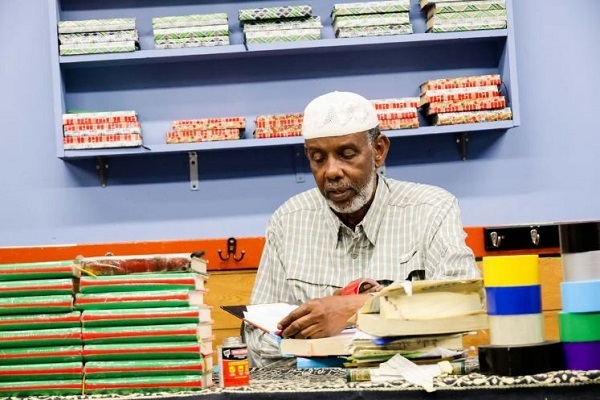Minnesota's Muslim Community Faces Challenges in Disposing of Old Qurans

Islamic rules on handling the sacred text are clashing with state environmental laws, leaving Muslim leaders searching for a solution.
For 16 years, retired tailor Mukhtar Isse has been rebinding Qurans using tape and glue to keep the sacred texts in circulation, the Sahan Journal reported on Tuesday.
He is one of three Somali men volunteering as bookbinders at local mosques, but they struggle to meet the growing demand. Minnesota imams report that strict disposal rules for the Quran, combined with state environmental regulations, have led to a buildup of old and damaged books at mosques.
Ahmed Burhan Mohamed of New Brighton, the first American to win the Dubai International Holy Quran Award, noted the increasing number of students memorizing the Quran. The recent Imam Shatibi Quran Competition saw 784 participants. The Quran remains a staple for every student, making it the best-selling book in Islamic bookstores across the state.
Haji-Ahmed Mohamed Firin, owner of Tawakal Bookstore in Minneapolis, said parents often seek guidance on disposing of worn-out Qurans. "What else can I tell them?" he said. "I advise them to take it to the mosque."
Read More:
In the past, families carefully preserved Qurans due to the scarcity of paper. Today, the abundance of printed Qurans and the number of young Muslims in Quranic classes have made disposal more challenging. "As children quickly wear out and rip pages from their own Quranic books, families struggle to find a proper way to dispose of the texts in accordance with Islamic rules," said Imam Yusuf Abdulle, executive director of the Islamic Association of North America (IANA).
"We want to follow the proper Islamic guidelines for disposing of old Quranic texts, but we must also adhere to the state's environmental laws. It's a challenging situation for us," Abdulle added.
While some Islamic traditions permit burning worn-out sacred books as a last resort, environmental regulations in Minnesota complicate this practice. Imam Mohamed Abdi Shuayb, founder of the Bayan Research Center, stated, "Islamically, it is permissible for old and worn-out Quranic texts to be burned appropriately." He lamented that despite having over 60 mosques in Minnesota, no one is performing this task.
According to Islamic law, damaged Qurans can be buried, burned, or reprinted/rebound.
Read More:
Imams and mosque leaders have met with Minneapolis Council Member Jamal Osman to discuss the need for a proper disposal solution. Technology may offer a solution, as many young people use Quran apps on their smartphones, reducing waste.
Farhan Abdi, an Eagan father of six, found his house full of old holy books after a trip to Kenya. "They are everywhere," he said. Abdi has pledged to help purchase a machine for incinerating old Qurans, offering a potential solution to the community's challenge.
Source: Agencies



